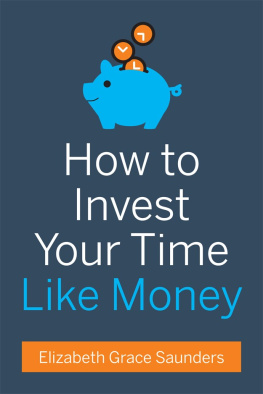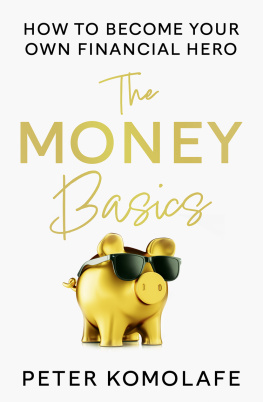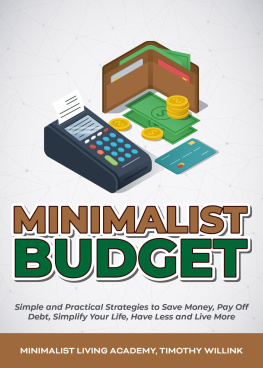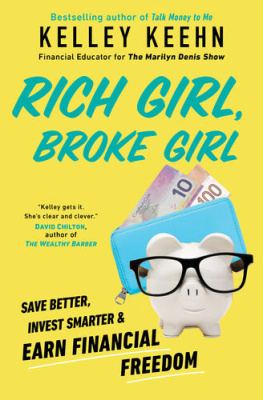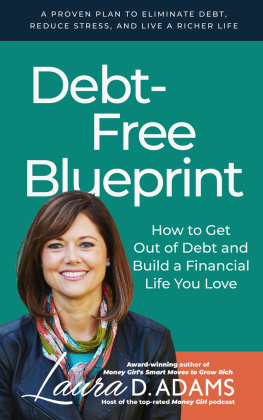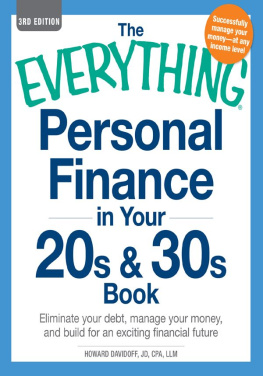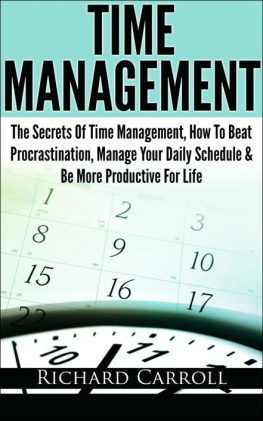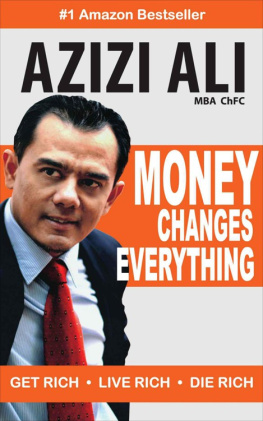Time is the scarcest resource, and unless it is managed nothing else can be managed.
Peter Drucker, The Effective Executive
There arent enough hours in the day.
You likely recognize this statement. You may have muttered it yourself, frustrated by your consistently packed schedule and competing demands. Day after day, both at work and in your personal life, you find yourself juggling too many projects at once and struggling to find the time to do the things you deem important, leaving you stressed and agitated. How can you manage your time more effectively, in ways that youll find both productive and gratifying?
Most time management methodologies fail to give you the sense of accomplishment and satisfaction you crave because they encourage you to stuff more into an already overflowing schedule. This creates the false hope that if you only worked harder, faster, longer, and smarter, you could do everything you want and make everyone happy. Thats more or less the equivalent of racking up credit card bills instead of learning to cut costs. When youve tried these strategiesand failed to do the impossibleyou feel worse than before because you have not only not gotten everything done, but felt miserable in the process.
Fortunately, theres a better way.
If youre frustrated and tired of feeling as if you have no control of your time and all of your attempts to manage your time have failed, you need to learn the skills to invest your time like money. When you do, youll finally have enough time for whats most important.
When you invest your time as if it were money, you look at the reality of how much time you have available and the truth of activities time cost. You then make decisions that allow you to get out of time debt. And with this balanced budget in hand, you can then set up the structure to consistently invest your time in whats most important.
This book provides a detailed look at how to learn these skills. It explains exactly how to both put these concepts into action and overcome the resistance that is likely to come up in the process of change. In addition, once youve achieved a level of mastery of the process, youll learn to maximize the return on investment of your time and assess your big-picture growth.
As an expert on effective time investment, Ive worked with training and coaching clients on six continents, contributed to a number of publications, including Forbes, Inc., and Time, and appeared on ABC, CBS, and NBC. My first book provided an overall look at how to achieve more success with less stress through effective time investment. Through my work helping real people solve real problems, Ive discovered that not having enough time for the important things is one of the biggest sources of stress. Thats why Ive provided in this book an in-depth guide for allocating your time so that whats most vital receives the appropriate amount of attention instead of getting pushed aside for other competing priorities.
Time, like money, must be invested to work for you now and support your ideal future. For some of you, coming to terms with your ideal time allocation and then moving from your current reality to your desired future state will require radical cuts, such as resigning from jobs, leaving graduate school programs, or ending relationships. Or it may include significant additions, such as starting positions, training for new skills, and adding more people to your life.
But for the vast majority of you, very little will need to shift in terms of your external circumstances; instead, what will need to change is you. Your mind-set, your decisions, and your routines determine whether you remain stuck or move forward and decide to intentionally live your best life.
At the outset, this will require some work, as you do when you take a couple of hours on a Saturday afternoon to set up your retirement plan so you get 10 percent returns in mutual funds instead of 0.5 percent in your savings account (or just spend all the money). But taking the time now will set you far ahead of your peers and make you far more satisfied with your life. Strategically investing your time will lead you to have enough time to be your best self, do your best work, and fulfill your potential.
In the following chapters, Im going to reveal the time investment strategies that have transformed thousands of peoples lives. But in order to see the kind of change in your life that we both want to witness, we first need to tackle three common subconscious barriers that can block your success.
Overcome Your Barriers to Success
If youre skeptical, fine. If youre unsure, no worries. If youre a bit apprehensive, thats not a problem. All of these emotions play a very natural role in the process of change. As I work with clients, I expect many sensations and feelings to come up, and I encourage individuals to acknowledge them and accept them. In time, their internal resistance subsides as they experience the transition from barely believing they can change to enthusiastically celebrating that change.
But to have the mental and emotional capacity to even begin changing your time investment choices, you must address and overcome these three critical barriers:
- Stop blaming others
- Disconnect success from suffering
- Quit defending your past
Stop Blaming Others
The first state of mind that I wont let my clientsor youstay in is one in which they blame others for their time-pressed situation. When you fall into this unhealthy dynamic in your relationships, often explained by Dr. Stephen B. Karpmans drama triangle, you end up taking on one of three roles: the victim, the rescuer, or the self-protector. From a time investment point of view, this is what the different roles look like:
- The victim constantly feels helpless because he believes everyone is heaping more requests or demands on him, and there is nothing that he can do about it.
- The rescuer feels anxious about another persons inability to handle his situation and rushes in to help. She later feels resentful that shes spent so much time helping others that she has no time for her own needs.
- The persecutor, or self-protector, expresses anger toward requests from others, fearing hell become overloaded and wind up a victim.
Sound familiar? Each one of us can fall into these roles when the situation is rightor wrong. Maybe youre the victim at work where you take on whatever colleagues throw at you, but youre the self-protector at home who bristles when a family member suggests you clean up the kitchen. Although its natural to want to point to an external source as the cause of your difficulties, its not helpful. To invest your time effectively, you must take ownership of your life and responsibility for changing yourself, regardless of whether anyone else changes. Here are three practical steps to break down this barrier:
Observe your reaction. Become aware of how you respond when your time investment becomes misaligned with your priorities. Do you become a victim and pity yourself?

